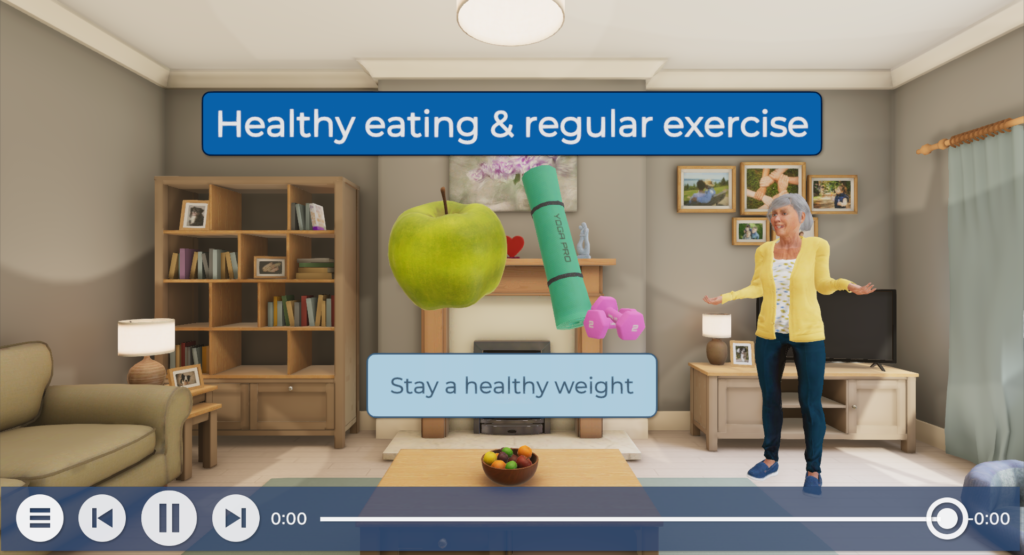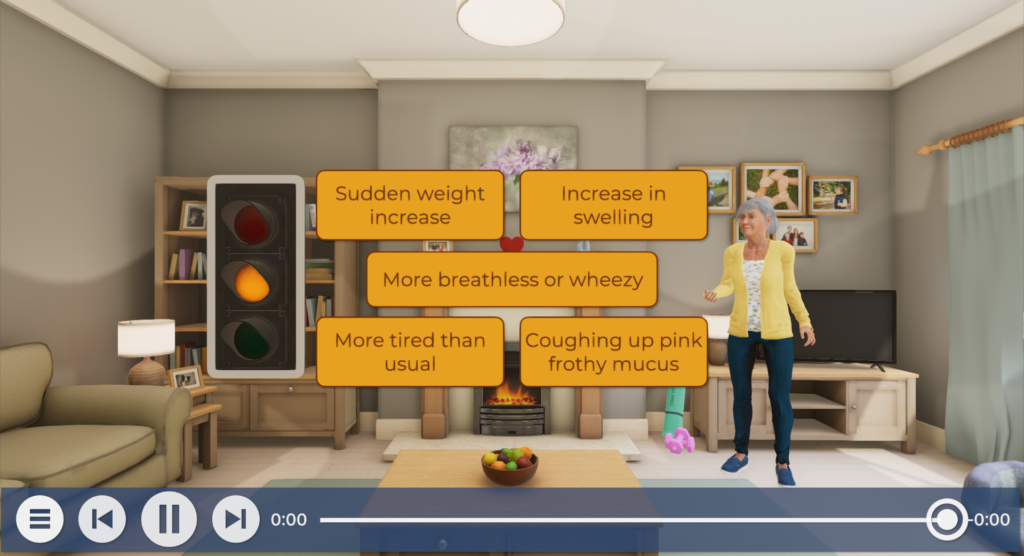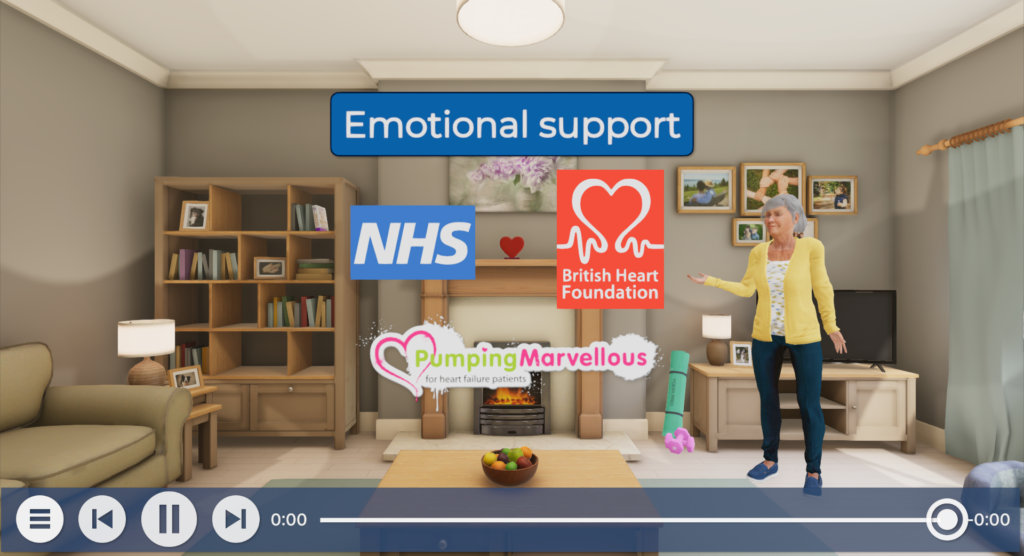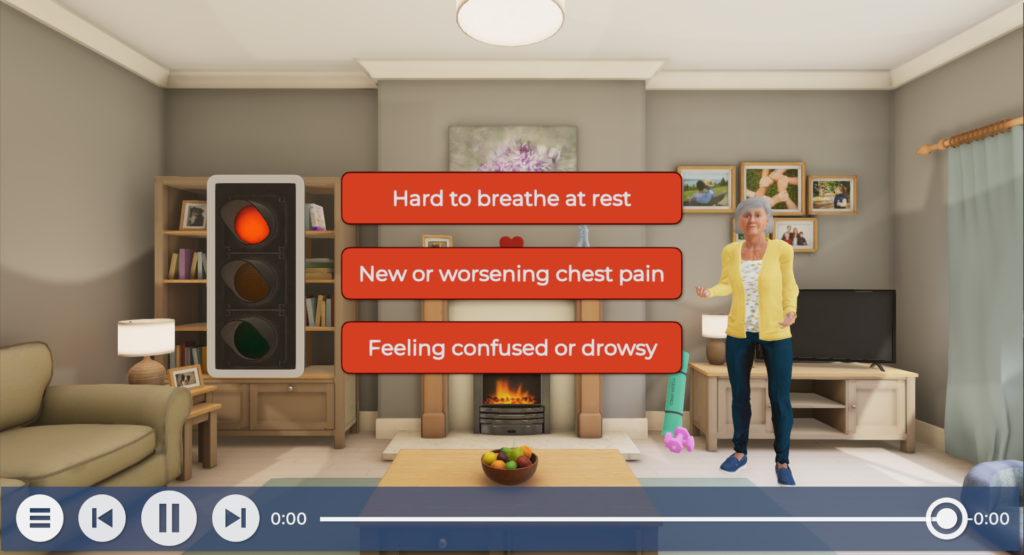The background:
Diagnosis with heart failure is often devastating and a highly anxious time for patients. There are around 920,000 people living with heart failure in the UK, with about 200,000 diagnosed each year(1).
Heart failure is a long-term condition but, with the right understanding around the condition and how to self-manage it, people with can live long and full lives with it. Although there’s no cure for heart failure, the condition can be controlled through medication, certain treatments and changes to lifestyle.
Patient education is therefore a priority for heart failure care but given low health literacy and high anxiety around diagnosis in heart failure, consultations and written materials may not be the optimum medium for this. Many struggle to understand and retain the information shared during a consultation, reducing the health benefits of appropriate self-management.
The challenge:
The Royal Brompton and Harefield NHS Foundation Trust wanted to support people to manage their own health and to stay well at home through easy to understand, impactful education.
The approach:
Cognitant worked with the Royal Brompton Hospital, London and other key stakeholders, including cardiologists, patient groups and an industry partner, to co-create a digital and interactive programme to help people better understand and manage their condition.
A moderated, structured focus group of heart failure patients and carers explored their experiences with patient education and identified areas in which heart failure education and knowledge of self-care was lacking. All participants shared their thoughts during the moderated discussion, with recurring themes identified.
Key themes that emerged from patients’ prior experience of patient education included:
- Feelings of being overwhelmed and isolated during the initial diagnosis of heart failure
- The importance of a trusted medium for accessing health information (and fear of misinformation)
- “A picture says a thousand words” – visual information was easier to absorb than text

The co-creation approach identified the key topics required for improved patient understanding and self-management: impact on lifestyle, the importance of heart failure medicines, lifestyle changes, care planning, and self-management (including monitoring for signs of deterioration).
Appropriate formats were also discussed to maximise the accessibility of the resource.

The solution:
A prototype avatar-led programme, starring a ‘patient expert’ avatar, aged around 65 years, was designed.
The first module, “Living with heart failure” outlines the following topics:
- Explaining what heart failure means
- The importance of heart failure medications
- Positive lifestyle changes that can be made to improve cardiovascular health (including exercise, smoking, alcohol, sex and relationships)
- Self-monitoring of heart failure symptoms and when to call for help
- Signposts to trusted heart failure educational resources
- Debunking of common misconceptions about heart failure and how it will affect lifestyle


References:
(1) The British Health Foundation, Heart Matters, 5 facts about heart failure that might surprise you – BHF
Cognitant
Looking to empower people with health information for better patient outcomes?
Additional Case Studies
Co-Creating a Personalised Digital Storybook for Children with Atypical Hemolytic Uremic Syndrome (aHUS)
June, 2025
Challenge Atypical Hemolytic Uremic Syndrome (aHUS) is a rare, life-threatening disease characterised by blood clots forming in small vessels, leading to kidney failure, anaemia, and...
Asthma Essentials
January, 2025
[embed]https://youtu.be/qmeiwjCr9Go[/embed] The challenge: Asthma remains a major health concern in the UK, affecting 5.4 million people, including 1.1 million children. Each year, the condition leads...
Cognitant successfully streamlines a top 10 pharma Patient Support Programme
July, 2024
A top 10 pharma company challenged Cognitant to optimise their Patient Support Programme (PSP) for an injectable medication, with the aim to streamline approvals, save...